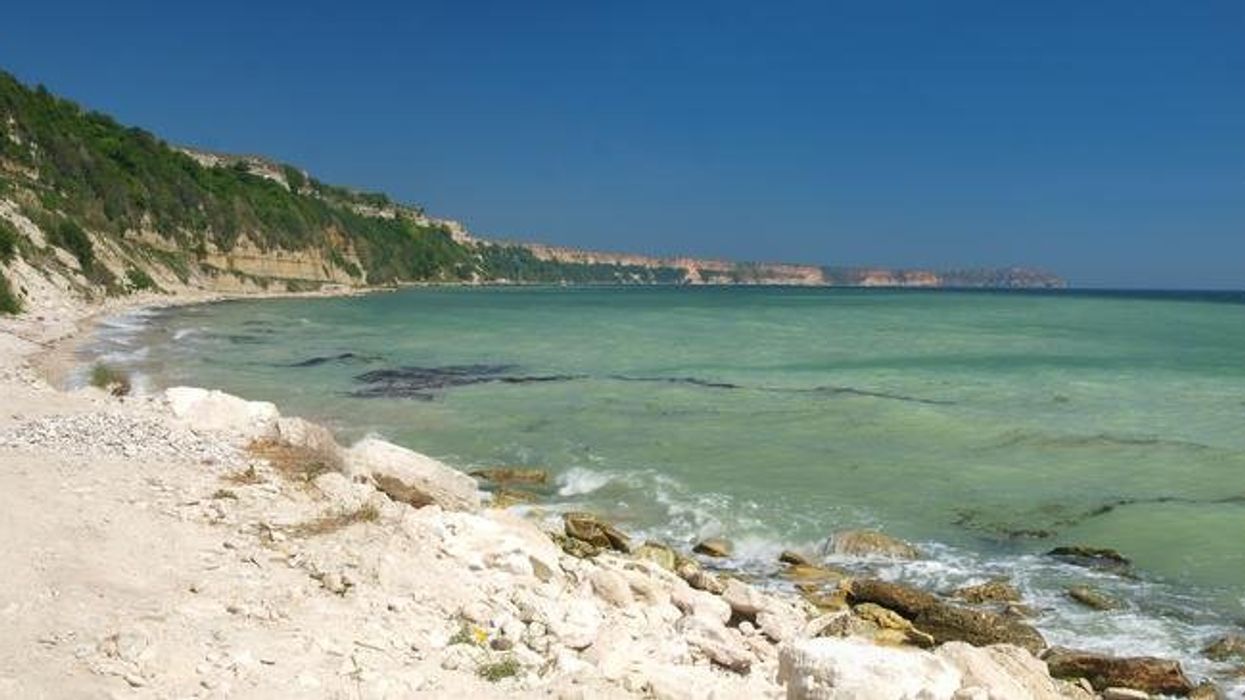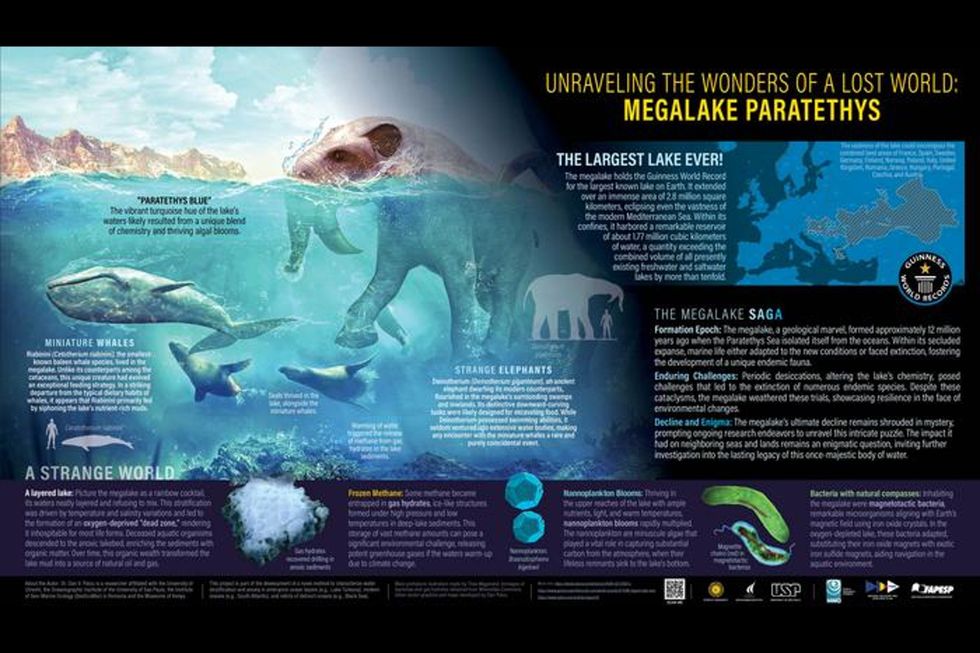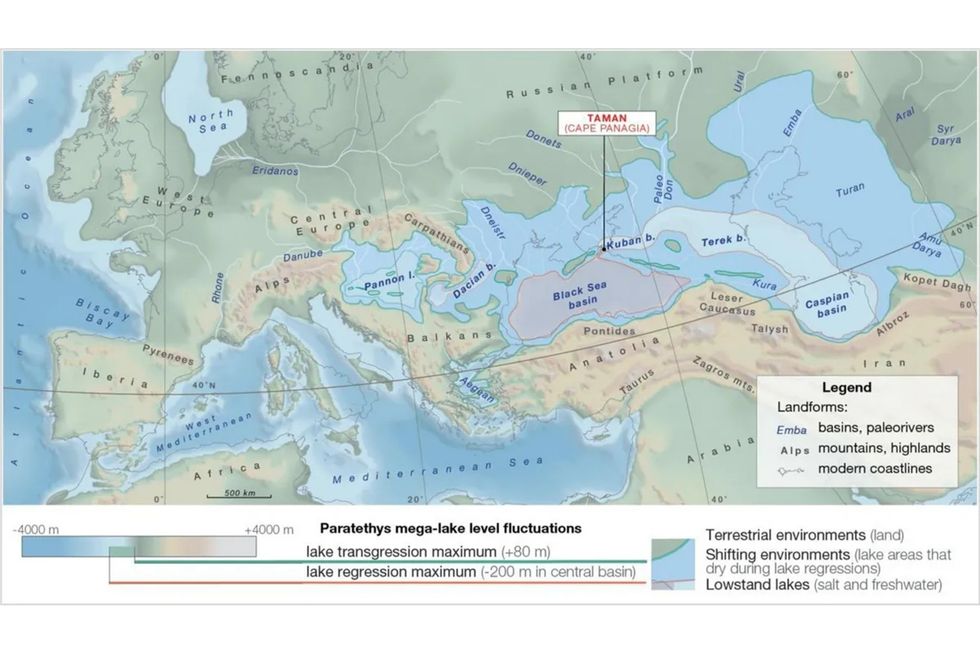Science & Tech
Harriet Brewis
Nov 28, 2025

Cliffs overlooking the Black Sea are one of the few remains of the ancient megalake
(Utrecht University)
From dinosaurs to continents (or, rather, continent), things seem to have been so much bigger back in prehistoric times.
It should, therefore, come as no surprise that the largest lake ever to have graced the Earth’s surface existed some 11 million years ago.
Still, it’s taken until December 2023 for Megalake Paratethys (as it’s now known), to enter the Guinness Book of World Records. And that’s all down to the hard work of a team at the Netherlands’ Utrecht University.
Earth scientist Dr Dan Palcu and his colleagues used a technique called magnetostratigraphy (which involves measuring reversals of the earth's magnetic field to date ancient sediment layers) to determine the exact dimensions of the monster lake.
They found that it stretched from the eastern edge of the modern-day Alps to Kazakhstan in central Asia, covering an area of 2.8 million square kilometres (1.08 million square miles).
At its peak, it contained more than 1.77 million cubic kilometres (424,645 cubic miles) of water, which is more than ten times the volume of all current salt- and freshwater lakes combined.
And its mildly salty waters were home to a unique fauna, including giant ancient elephants and Cetotherium riabinini – the smallest whale ever found in fossil records.

The researchers believe that Paratethys was formed by the rising of central Europe’s mountain ranges, a process which separated the ancient Paratethys Sea from the ocean, thereby creating the megalake.
Still, it wasn’t smooth sailing for this record-breaking behemoth.
Over the millennia, it suffered multiple periods of crisis, the most severe of which saw it lose more than two-thirds of its surface and one-third of its volume, with water levels plummeting by as much as 250 metres.
This wreaked havoc on its endemic fauna, leaving many species extinct, as Utrecht University pointed out in a news release.
Eventually, the lake refilled again, connecting it with the Mediterranean Sea and ending its reign as the largest lake ever.
In a paper on his findings, Dr Palcu explained that the impact of his Paratethys work “goes beyond mere curiosity”.
“By exploring the cataclysms that this ancient megalake endured as a result of climate shifts, we gain invaluable insights that can elucidate the path to addressing current and future crises in toxic seas, such as the Black Sea," he said.
He noted that the modern Black Sea mirrors the hazardous conditions of its ancient counterpart, being (like Paratethys) largely devoid of life-sustaining oxygen.
Its depths house hydrogen sulfide, a toxic gas harmful to both humans and most animal species, while its sediments house “frozen” methane, an exceptionally potent greenhouse gas.

The fear is that as the Earth warms up, these methane stores could melt and be released into the atmosphere, thereby triggering environmental catastrophes.
Still, it’s not all bad.
Dr Palcu emphasised that understanding the Paratethys could offer a beacon of hope for the future.
“The modern Black Sea has the potential to become one of the Earth’s largest natural carbon storage regions,” he stressed.
“Its stability is of paramount importance in unlocking its capacity as a frontrunner site for future carbon storage initiatives.”
So whatever happened to the vast expanse of water that made up the megalake?
Well, between 6.7 and 6.89 million years ago, it was drained thanks to erosion on its southwest edge.
As the water tumbled from the resulting outlet, it likely carved "an impressive waterfall," Dr Palcu said.
That would have undoubtedly been a sight to behold, but we'd rather not witness such events again.
This article was originally published on 27 December 2023
Elsewhere from Indy100, A newly found ancient language in Turkey is yielding new discoveries, and The unsolved mystery of Japan's ancient underwater 'pyramid'.
Sign up for our free Indy100 weekly newsletter
Have your say in our news democracy. Click the upvote icon at the top of the page to help raise this article through the indy100 rankings
Top 100
The Conversation (0)













